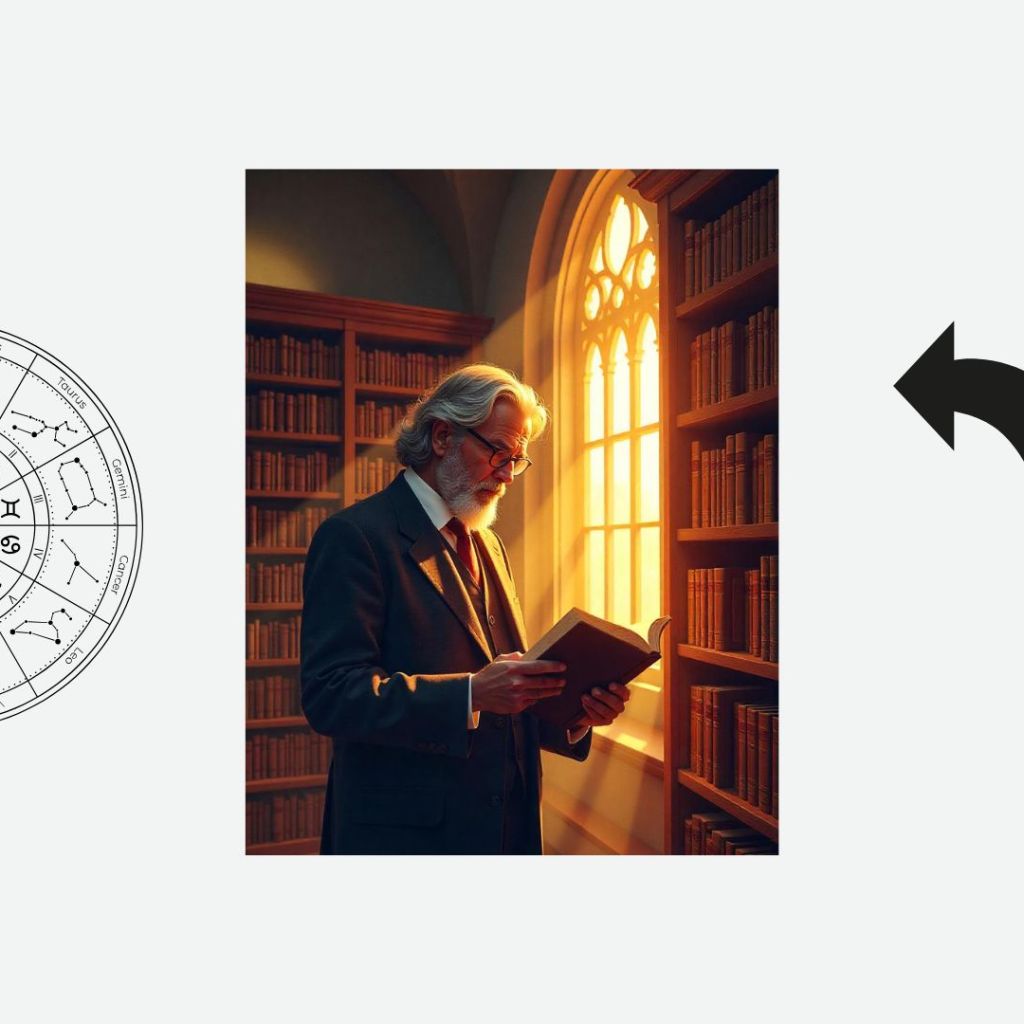When Carl Jung described astrology as “the sum of all the psychological knowledge of antiquity,” he wasn’t simply paying lip service to an ancient practice. He was acknowledging something profound about our relationship with the cosmos and our inner worlds.
I’ve always been fascinated by how Jung managed to bridge seemingly opposing worldviews. On one hand, he was a trained psychiatrist with impeccable scientific credentials. On the other, he was deeply interested in the symbolic language of myths, dreams, and yes—the stars.
Table of Contents
The Symphony of Symbols
Jung didn’t believe planets literally controlled our fate. Rather, he saw astrology as a rich symbolic system that reflects patterns in our collective unconscious. Think about it: for thousands of years, humans have projected meaning onto celestial bodies, creating a shared psychological framework that transcends cultures.
The zodiac signs aren’t just arbitrary divisions of the sky—they represent fundamental human archetypes that resonate with our deepest psychological patterns. Aries embodies initiative and courage, Taurus represents stability and sensuality, Gemini reflects curiosity and duality… each sign capturing a specific mode of human experience.
When I first encountered Jungian psychology, this perspective shifted my understanding of astrology from fortune-telling to something far more interesting: a symbolic mirror of the psyche.
Synchronicity: Beyond Cause and Effect
One of Jung’s most fascinating concepts is synchronicity—meaningful coincidences that defy conventional causality. Jung observed that sometimes external events mysteriously align with our internal psychological states, creating moments of profound meaning.
Astrology operates in this synchronistic realm. The arrangement of planets at your birth doesn’t cause your personality traits, but Jung would suggest there might be a meaningful correspondence between them. It’s not about causation but correlation—a reflection of the underlying unity of all things.
I remember experiencing this firsthand during a particularly difficult transit of Saturn. As the planet of lessons and limitations crossed significant points in my birth chart, I found myself facing parallel challenges in my professional life. Was it mere coincidence? Jung would argue it was synchronicity at work.
The Collective Unconscious and Astrological Archetypes
What truly sets Jung apart was his concept of the collective unconscious—a shared psychological inheritance containing universal symbols and patterns he called archetypes.
The planets in astrology function remarkably like Jungian archetypes:
- Saturn represents the strict father, boundaries, and time
- Venus embodies the lover, beauty, and connection
- Mercury symbolizes the trickster, communication, and intellect
- The Moon reflects the mother, nurturing, and emotions
These planetary energies correspond to psychological forces that shape our development. They aren’t external deities controlling our lives but internal patterns seeking expression through our personalities.
Individuation: The Astrological Journey
For Jung, the ultimate goal of psychological development was individuation—becoming whole by integrating all aspects of the self, including those hiding in the shadow.
An astrological birth chart can be viewed as a map of this individuation journey. The positions of planets, their aspects, and houses reveal the psychological terrain we must navigate to become fully realized humans.
The challenging aspects in our charts—those squares and oppositions that astrologers sometimes warn about—often point to the very psychological tensions that drive our growth. Just as Jung saw psychological conflicts as opportunities for integration, difficult astrological aspects can highlight areas where our greatest development can occur.
The Modern Relevance of Jung’s Astrological Perspective
In our hyper-rational world, we’ve largely dismissed symbolic systems as primitive superstitions. Yet Jung recognized that humans need symbolism to access deeper psychological truths that logical thinking alone cannot reach.
Astrology offers a language for understanding psychological patterns. When someone says, “I’m feeling my Neptune transit,” they’re expressing something about confusion, dissolution of boundaries, and spiritual opening that might be difficult to articulate otherwise.
The growing popularity of psychological astrology—which focuses on self-understanding rather than prediction—suggests many people find value in this symbolic approach. It offers a framework for contemplating our complexities, much like dream analysis provides access to unconscious material.
Beyond Belief: A Psychological Tool
Whether the planets actually influence human behavior remains scientifically unproven. But Jung would argue this misses the point. The value of astrology lies not in its literal truth but in its psychological utility.
When we engage with our birth charts, we’re participating in active imagination—another Jungian technique for dialoguing with unconscious aspects of ourselves. Through this process, we can gain insights that might otherwise remain inaccessible.
I’ve seen skeptical friends begin exploring their charts with amusement, only to be surprised by how accurately certain placements describe their inner experiences. Not because stars determined their personalities, but because astrology has evolved over millennia to capture common psychological patterns.
Finding Personal Meaning in Celestial Patterns
Jung’s appreciation of astrology teaches us something vital about psychological growth: sometimes the most direct route to understanding isn’t through clinical analysis but through symbolic engagement.
Whether you believe planets influence human behavior or simply provide meaningful metaphors, exploring your chart through a Jungian lens can reveal hidden aspects of yourself. It’s not about predicting the future but understanding your psychological makeup.
The next time you read about your sun sign or hear about an upcoming Mercury retrograde, consider it through Jung’s perspective—not as cosmic determinism but as an invitation to deeper self-reflection.
After all, as Jung himself might say, the stars don’t compel us to be anything; they simply reflect the infinite patterns of being human. And in recognizing those patterns, we take one step closer to wholeness.
Read More From Our Site:

